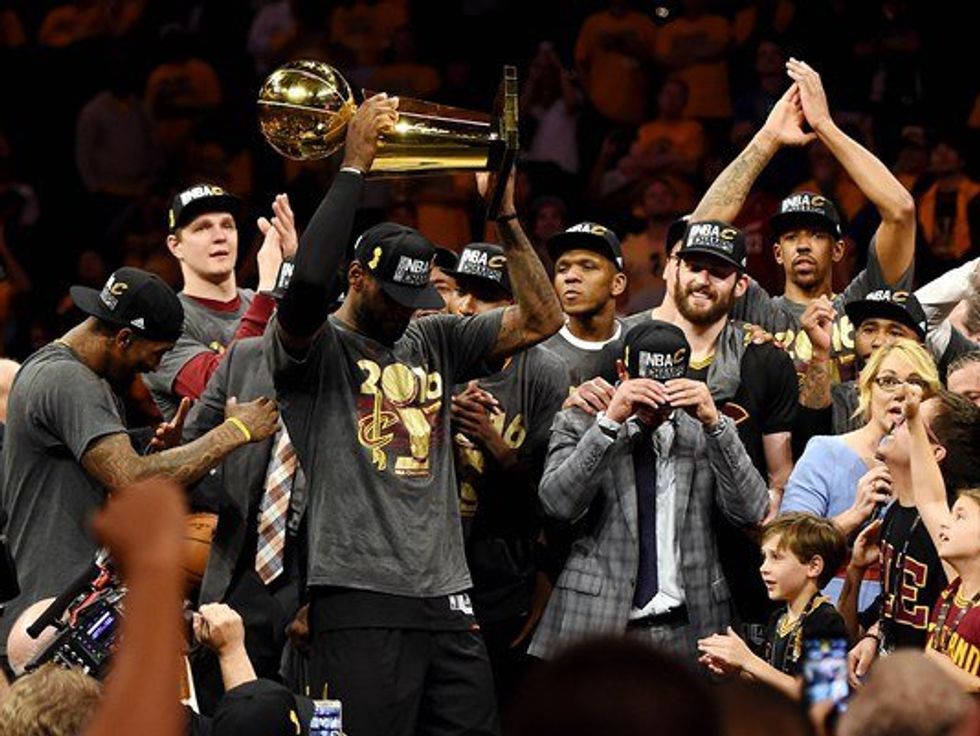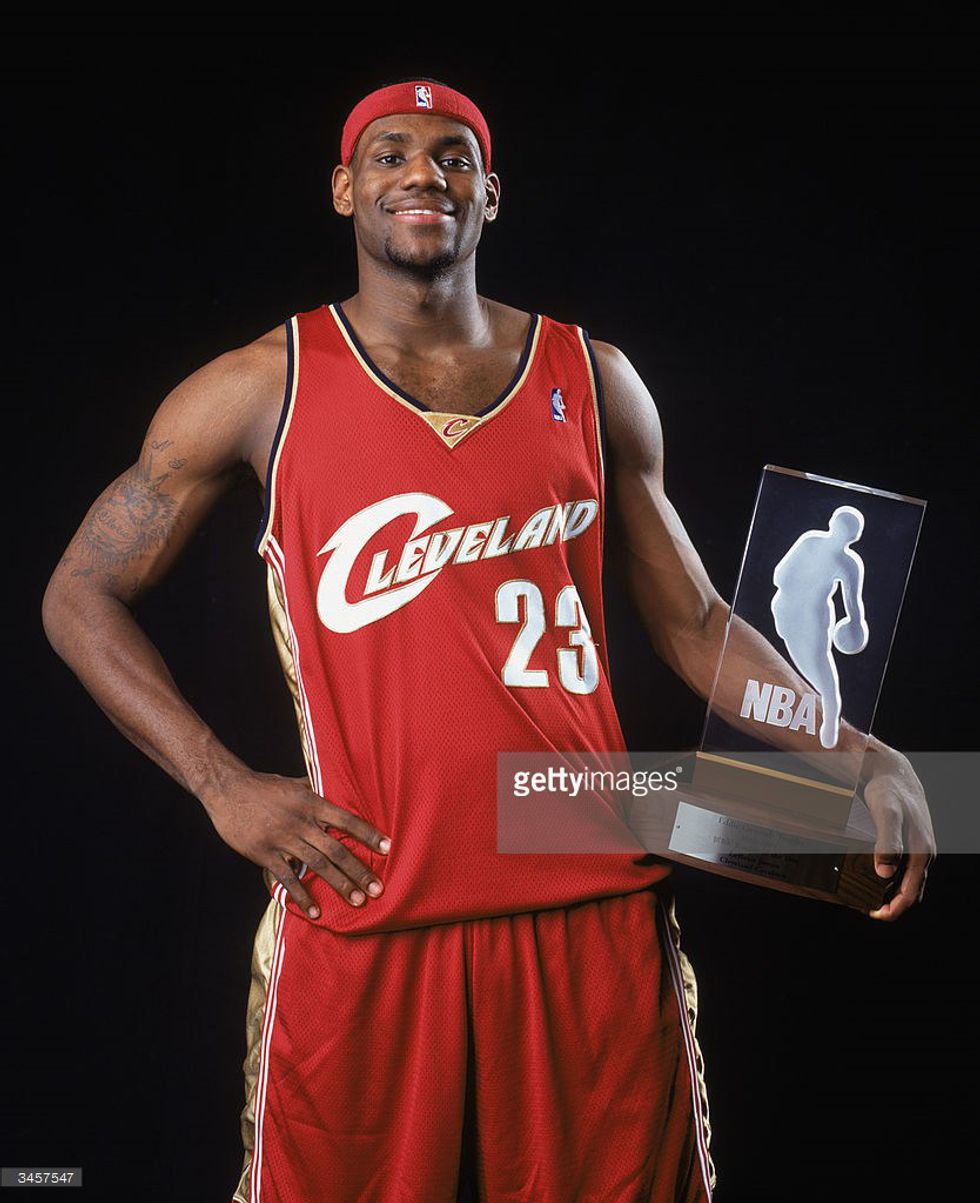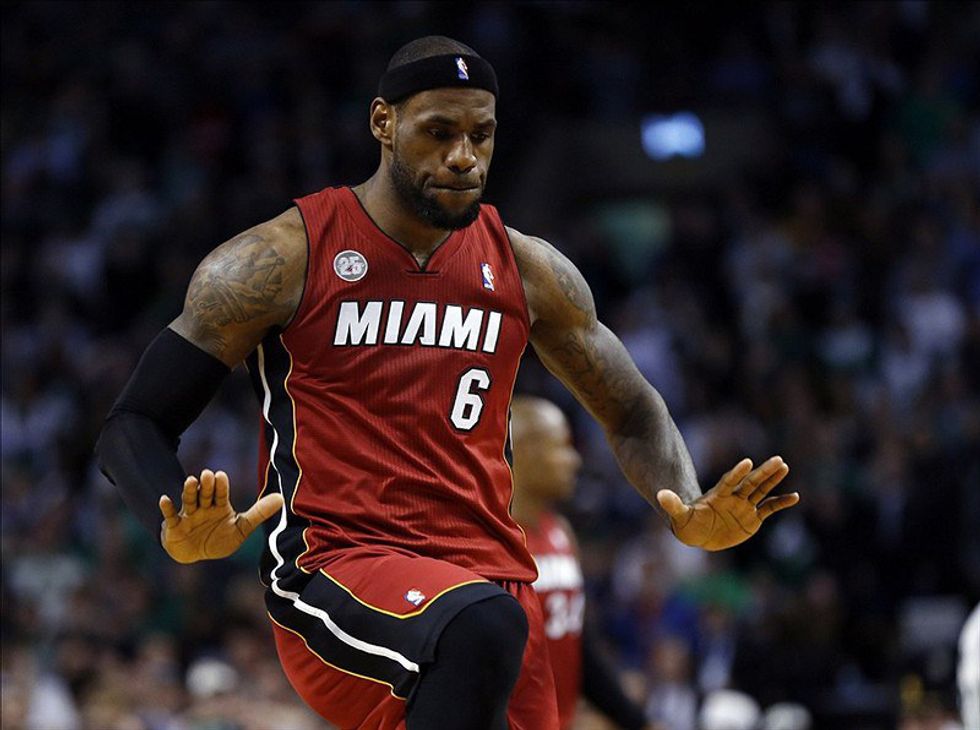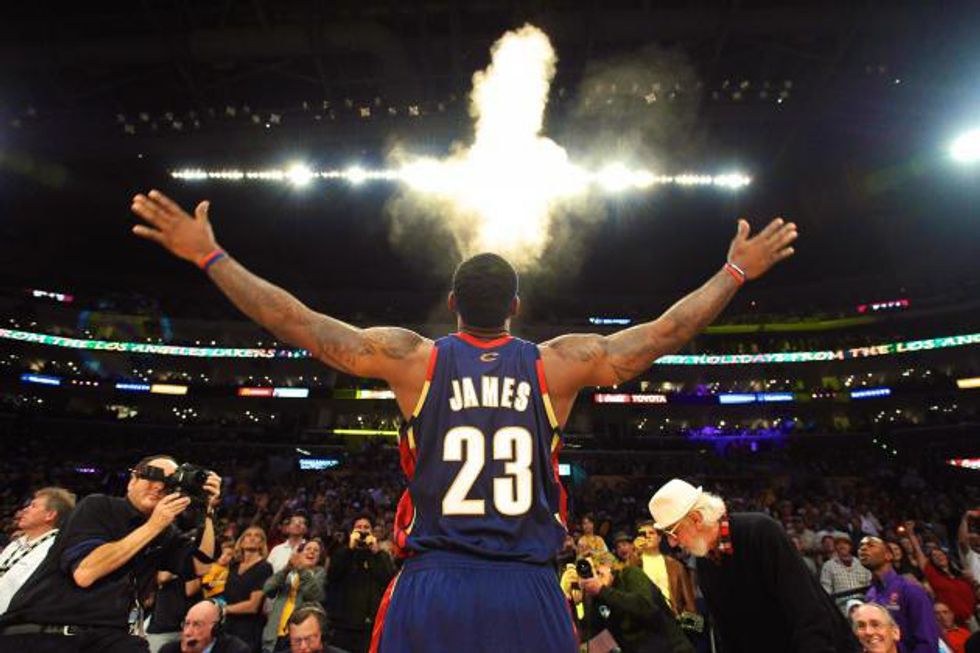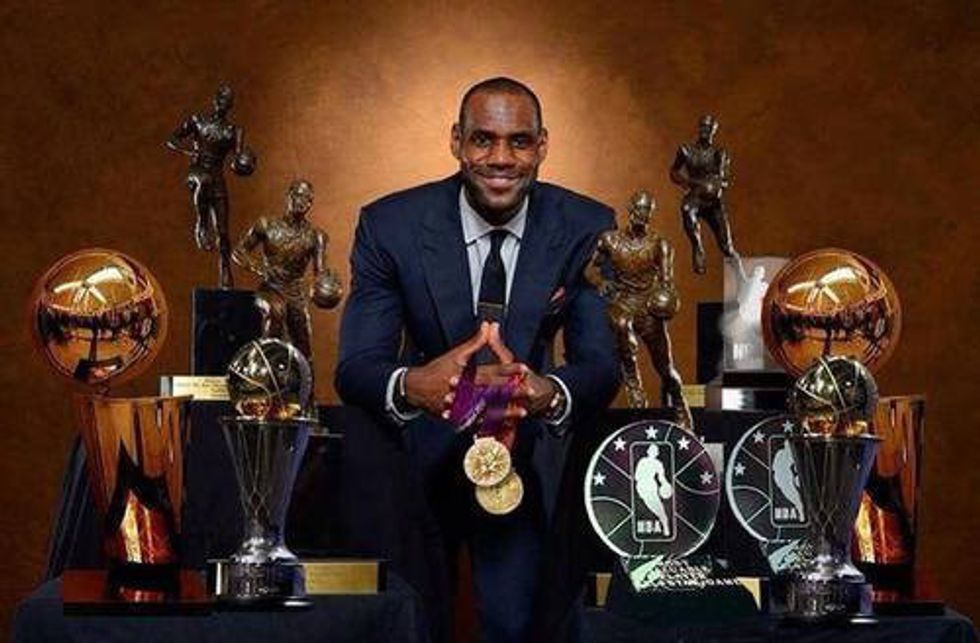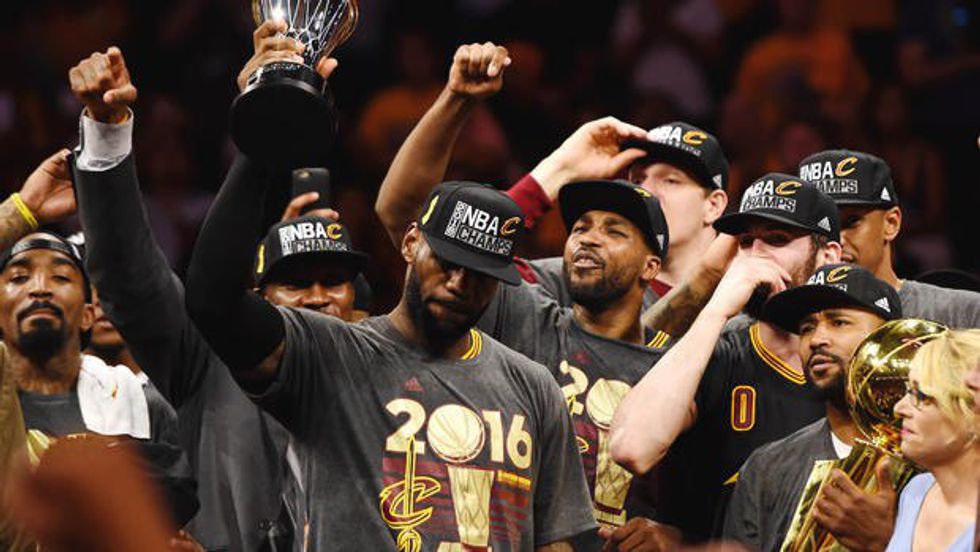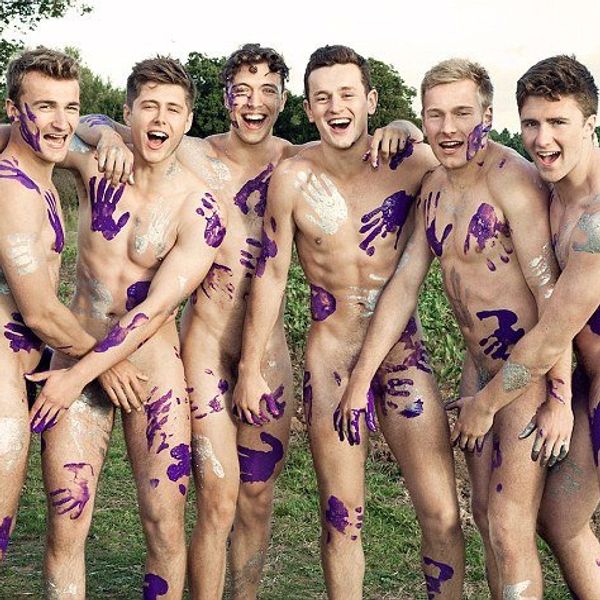First of all, let me begin by saying that much like any mock draft ever compiled, attempting to evaluate a player’s legacy before his career has been completed is a futile and vain endeavor.
With that being said, I am going to make my best attempt.
LeBron James has long been one of the most enigmatic players in the NBA. At times he has lived up to the hype as an unstoppable force and the most dominant player in the league, while other times he has seemingly deferred to teammates in the “big moments”. His statistics jump off the page and vault him into the Hall of Fame category but his record in the finals leaves some to be desired by fans and critics alike. When evaluating a player’s legacy, it is imperative to examine their entire body of work versus sticking to a one-dimensional, closed-minded approach like “ring count determines everything”. One must consider individual season awards, season and playoff statistics, team success, offensive and defensive impact on the team and, of course, championship rings.
As a rookie, James averaged 20.9 points, 5.5 rebounds and 5.9 assists and was just the third player in history to do so in his rookie season. He won the Rookie of the Year award and carried that momentum into the 2004 season where he began to establish his dominance over the league. He earned a trip to his first ever All-Star Game while averaging 27.2 points, 7.4 rebounds, 7.2 assists and 2.2 steals per game, although his team could not reach the playoffs. His true coming out party came in the 2005-2006 season when he again made the All-Star Game and finished second in most valuable player voting to a blazing Steve Nash who won the second of his back-to-back MVP awards.
While he did not win the MVP award, he did propel the Cavaliers to their first playoff appearance since 1998. In his first playoff game ever, James showed of his multi-faceted game recording a triple-double (accumulating 10 of three different statistical categories, in Lebron’s case it was points, assists and rebounds). In the third game of his first playoff series he recorded the first game-winning shot of his career and proceeded to make another in Game 5. While the Cavaliers survived the first round, they were defeated by a talented Pistons team in the second round. In the 2006-2007 season, his averages dipped slightly which drew criticism from the media who claimed his skills has regressed and that he failed to demonstrate consistent effort or focus for the length of a game. He answered the criticism in the playoffs later that season in Game 5 of the Eastern Conference Finals in which he recorded 48 points, nine rebounds and seven assists. Moreover, he scored 29 of Cleveland’s last 30 points of the game, including the game-winning lay-up. It was listed by ESPN as one of the top playoff moments in history as LeBron went on to meet the Spurs in his first NBA Finals appearance. Unfortunately, the Cavaliers’ depth was not nearly good enough to compete with the surging Spurs, who swept the Cavs in four games while LeBron averaged 22 points, seven rebounds and seven assists per game. In the following season, James was phenomenal recording seven triple-doubles on the season and also averaging 30 points per game which earned him his first NBA scoring title.
The Cavaliers were defeated in the second round of the playoffs by the Celtics, even with James mustering a 45-point performance in the pivotal seventh game. The lack of talent surrounding James had never been more apparent. LeBron responded by elevating his level of play even further, truly beginning to realize his full potential. In the 2008-2009 season, he finished second in the NBA Defensive Player of the Year voting and made the first NBA All-Defensive Team. He also led his team in points, rebounds, assists, steals AND blocks that season, propelling his team to an absurd 66-16 record. He won his first MVP award behind averages of 28.4 points, 7.6 rebounds, 7.2 assists and 1.7 steals a game. The Cavs advanced to the Conference Finals easily, but lost to the Magic in six games even with James averaging 38.5 points, 8.3 rebounds and 8 assists per game. How much more can one of the best players in the world do to give his team an opportunity to win a championship? If you said win a second MVP while posting a career-high assist average, then you guessed it. LeBron, in lieu of his injured guards, took over the point position and channeled his inner Magic Johnson. He posted averages of 29.7 points, 7.3 rebounds and a whopping 8.6 assists but his team was again vexed by the experienced Celtics who eliminated the Cavs in game six despite Lebron posting another triple-double.
Are you growing tired of the “Lebron needs more help” narrative? Imagine how exasperated he must have felt after time and time again the front office failed to give him the support they promised him on the court.
And so he left, in an infamous fashion that many, if not all, are familiar with. He decided to take his talents to South Beach to play with other future Hall of Famers such as Dwyane Wade and Chris Bosh. By joining the Miami Heat, James had immediately surrounded himself with more talent than he had ever had at any point in his NBA career and the pressure to win championships only further increased. James excelled defensively in coach Erik Spoelstra’s system, and he also became a more efficient shooter averaging 26.7 points, 7.5 rebounds and seven assists per game while shooting 51% shooting. Miami advanced to the Finals in their first season of the “Big Three Era” but lost to the Mavericks in six games, after which Lebron was heavily criticized for disappearing in the series, averaging only three points in fourth quarters of the series and posting a scoring average of 17.8 points. Lebron was now 0-2 in the NBA finals and his legacy had seemingly taken a hit. However, the Miami Heat bounced back finding their stride and establishing chemistry among the players and coaching staff alike. Behind a newly refined post game attributed to offseason work with Hakeem Olajuwon, Lebron posted a field goal percentage of 53 percent on the season, and the Heat went on to defeat the talented Oklahoma City Thunder in five games. In game five of the series, Lebron posted another triple-double and won his first championship and his first Finals MVP to go along with it. The following season yielded unheralded dominance, as Lebron averaged 26.8 points, eight rebounds and 7.3 assists on a scalding 56.5 percent shooting and finished just one vote shy of being the first player to win the MVP award unanimously. He continued to have signature moments. He added another game-winning bucket to his resume in the Conference Finals setting him up for a rematch with the San Antonio Spurs who had swept him in his first finals appearance. The two teams went toe-to-toe for seven games, and in the final game of the series he tied the Finals record for most points scored in a Game Seven victory with his 37 points, and earned another Finals MVP as he averaged a double-double for the series. The King had captured his second ring.
Unfortunately, all good things must come to an end. The fatigue of the extra minutes from the lengthy post-season trips and the weight of championship expectations caused Lebron and the Heat to come up short of their goal in a rematch with the Spurs in the finals losing in five games. James did what he could averaging 28.2 points and 7.8 rebounds, but an ailing wade and various injuries to the roster gave the Spurs an opportunity on which they capitalized. Lebron had reached the finals, now four straight times, and many believed him to be intent on resigning with Miami once he hit free agency in the following summer.
But many, including myself, were wrong.
James, the prodigal son, returned to Cleveland who now had a promising point guard in Kyrie Irving, who was steadily rising to elite status when healthy. Using their first overall pick of Andrew Wiggins as trade bait, they managed to attain the services of the versatile offensive forward Kevin Love forming a new Big Three. The Cavaliers suddenly went from one of the worst teams in the league to a legitimate title contender. With his new teammates, Lebron was able to book his trip for his fifth straight NBA Finals, the most of any player since the 1960’s. However, due to injuries to both Kyrie Irving and Kevin Love, James was left to face the loaded Golden State Warriors without two of the best players on his team. He turned in a performance for the ages averaging 35.8 points, 13.3 rebounds and 8.8 assists per game in the finals, but ultimately the Cavs fell short once again. Even though they had lost, many were calling for James to win Finals MVP and he was given serious consideration, though Andre Iguodala took home the honors for the Warriors. James’ dominance showed that if the Cavaliers were healthy come time for the Finals, they had a chance to beat anyone in the following season.
And we all know how that turned out.
Many thought James had lost a step during the regular season, and that perhaps age had diminished some of his athleticism that had previously allowed him to excel on the offensive and defensive end of the floor. It appears that James was simply saving himself for the playoffs where he was utterly dominant throughout. The Cavs swept their first and second round match-ups, and beat the Raptors to secure another trip to the NBA Finals. James advanced to his sixth straight finals, and his finals record stood at 2-4 at that time. Many were saying another finals loss would damage his legacy irreparably as someone who would always get close, but shrink away in the big moment and fail to follow through on promise and potential. Lebron answered as only he could, by defying all odds and making history in the process. Down 3-1 to the Warriors, who held the NBA record for the best regular season record ever, James and his teammates clawed back from a deficit never-before overcome in the NBA Finals. James posted back-to-back 41 point games in Games Five and Six, and posted a triple double in Game Seven to become only the third player to do so in a Finals Game Seven. James had delivered his city the championship he had promised at long last, giving them their first championship in nearly 52 years. He averaged 29.7 points, 11.3 rebounds, 8.9 assists, 2.3 blocks and 2.6 steals per game, becoming the only player in NBA history to lead both teams in all five statistical categories for a playoff round as he was awarded another Finals MVP.
That is a large body of work and quite a bit to take in. All in all, Lebron achieved the following accolades over his career thus far:
- Three-time NBA Champion
- Three-time Finals MVP
- Four-time League MVP
- Youngest player to 25,000 points
- 12-time All-Star
- Ten-time First Team All-NBA
- Five-time NBA All-Defensive Team
- Only player besides Oscar Robertson to be top 20 points and assists
- 2007-2008 Scoring Champion
- Career Averages of 27 points, 7 rebounds and 7 assists per game
- Six straight Finals Appearances
And this is not even including the obscure records that James has accumulated such as in 2013, James was second in league in catch and shoot percentage and also led the league with 2.6 3 pointers per game off of his passes. Looking at the résumé alone, one might think that the achievements are that of someone who has already completed their career and is sitting comfortably in the NBA Hall of Fame.
But, Lebron is not done yet.
This is where it gets difficult to compare Lebron to the other greats. Many like to use the “rings mean everything because ultimately you’re playing for a championship” argument. In these instances, critics of Lebron will point to players like Bill Russell (11) and Michael Jordan (6) as having the edge in legacy over James due to the ring count. However, without context, these numbers can be extremely misleading. Take, for example, the fact that when Bill Russell won his first championship, there were only eight total teams in the NBA. This obviously makes the likelihood of winning a championship much more probable. Also, many players at the time were not dedicated to the sport, working jobs while playing professional basketball part-time. The athletes are better and more dedicated these days, and absolutely they are more skilled. In Russell’s day, physical ability could dominate the game in ways that it simply cannot anymore with the complicated defensive and offensive sets that coaches have concocted over the years. And to be quite frank, one cannot point to rings as being the only thing that matters and that’s why Bill Russell and Jordan are better than Lebron for one simple reason. Are you honestly trying to tell me that K.C. Jones, who averaged 7.4 points, 4.3 assists and 3.5 rebounds a game for his career but won eight total rings, is a better player than Jordan because he has more rings? Really? And while we’re discussing it, of course Jordan won more titles than Lebron considering the surrounding talent the two had while in the early stages of their careers.
Michael Jordan had Doug Collins and one of the greatest coaches of all time in Phil Jackson to guide him and his teammates. Lebron had a continuous carousel of coaches that could not get on the same page with an erratic front office making it hard to establish any continuity. Horace Grant, Scottie Pippen, Dennis Rodman, Steve Kerr, Kukoc and B.J. Armstrong were all talented players that Michael Jordan was able to play with. The best players Lebron had while he was with the Cavaliers for all those years, whom he carried to the playoffs? Zydrunas Ilgauskas, Carlos Boozer, Anderson Varejao, an aging Drew Gooden and Ben Wallace, Mo Williams, JJ Hickson and Delonte West. The supporting casts do not even compare, and it is very clear that Jordan had much deeper teams with him through the early stages of his career. With Lebron on an NBA Finals warpath over the last six seasons, he could slowly approach his Airness’ ring count by the time his career draws to a close. Although before that happens, Lebron will add to his already staggering career numbers. He is the only player since the great Oscar Robertson to be top 25 all-time in both points and assists. James currently sits at 18th all-time in assists (playing as a small forward/power forward) and is 11th in all-time scoring. What is even more interesting is that James is currently on pace to catch Jordan’s point total in 2.5 seasons.
Even more impressive is how Lebron consistently finds his way to the playoffs and manages to bring his best. James’ playoff totals have him sitting comfortably at fourth in points, third in assists, ninth in rebounding, 21st in blocks and fourth in steals at the age of 31. Even more interesting is looking at the all-time rankings for offensive and defensive win shares. Offensive win shares are an analytics tool which determines a metric to estimate the number of wins a player produces for his team, while defensive win shares are credited to a player based on their defensive rating (points allowed per 100 defensive possessions). These metrics are used by NBA teams, well-established publications such as Basketball Reference and sports media outlets like ESPN and NBA TV. Looking at the rankings for playoff win shares, offensively Jordan ranks second and defensively he ranks seventh. Where does James rank? First in offensive win shares. Fifth in defensive win shares.
The problem with getting obsessed with comparing great players like Jordan and Lebron is that we completely ignore the styles with which each player plays the game. Jordan absolutely was a great clutch player and talented scorer with an ultra-competitive demeanor. Lebron is a physically and mentally gifted player whose high basketball IQ allows him to judge and corral rebounds with the best of the bigs and dish the ball with the smoothest of the guards. The win shares demonstrate James’ overall impact that he brings to the team on the offensive and defensive ends, so really the question “Who would you rather have: Lebron or MJ?” isn’t entirely fair. Are we talking about a season? A playoff series? The last two minutes of the NBA finals with a tie game? Some instances Lebron might be the better pick. In other instances, Jordan. The two are completely different players whose legacies should stand independent of one another to be evaluated, but because of the comparisons James has received since he was in high school, the two will always be debated as 1A and 1B when we discuss the greatest player ever.
Lebron is in the top five NBA players of all time. His career did not get off to the smoothest start. There were growing pains for him and the Cavaliers organization alike. They tried to make things work as they could always seem to get close, but not close enough while James continued to rack up accolades and wonder why he couldn’t get more help from his lackluster team. He ultimately escaped to South Beach in search of rings, immersing himself in a winning culture and learning everything he could in the process. His hardware hunt yielded him four finals trips, two championships and two finals MVP’s, but it also taught him about what it took to win and compete at the highest level. He brought this newfound knowledge and maturity back to Cleveland with him to deliver on his promise of a championship, and by fighting back from a 3-1 deficit against what many believed to be one of the best teams in NBA history, he did it in true Cinderella fashion. He has three rings and seven total finals appearances. He has countless individual accolades. He has signature moments from his perennial playoff appearances. Don’t overthink it, and if you feel the need to compare Lebron to one of the greats before him, be my guest, just know that until Lebron finishes his career that it will be pointless to try (much like me trying to evaluate Lebron’s legacy).
But just remember,
It's all about context.



